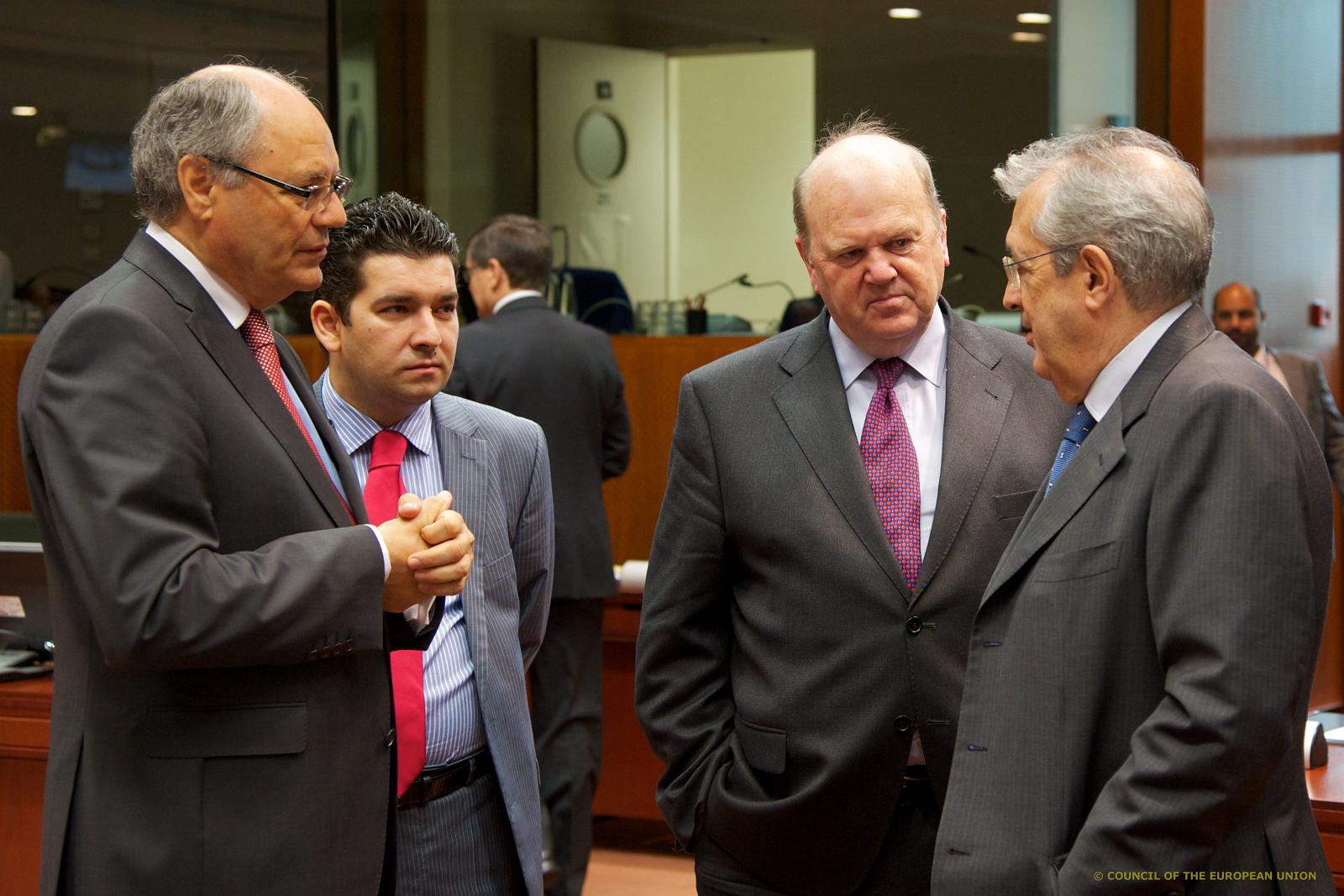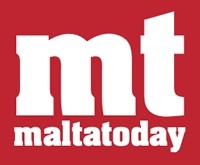Attending an ECOFIN Council meeting in Brussels on 9th July, Finance Minister Prof. Edward Scicluna welcomed a joint decision by European Finance Ministers to endorse a code of conduct that will afford enhanced monitoring and assessment of draft budgetary plans of Euro Area Member States.
(Left to Right) Maltese Minister for Finance Prof. Edward Scicluna, Romanian Minister Delegate for Budget Mr. Liviu Voinea, Irish Minister for Finance Mr. Michael Noonan, Italian Minister for Finance and Economy Mr. Fabrizio Saccomanni.
“As a country, we have already stepped up budgetary and spending monitoring through the establishment of a Spending Review Unit which is addressing waste and maximising budgetary allocations. This will allow the Government to adhere to its budgetary allocations and eliminate the risks of future fiscal slippage. ”Prof. Scicluna added. “This is in-line with this Government’s pledge to end 2013 with a deficit below 3%.”
Regulation (EU) No 473/2013 provides for common provisions for monitoring and assessing draft budgetary plans. The regulation builds on and complements the European framework for fiscal surveillance, including the Stability and Growth Pact (SGP) within the Euro Area (EA). In particular, it allows for a strengthened surveillance (by means of additional reporting requirements) of Euro Area Member States which are subject to an excessive deficit procedure, thereby aiming at ensuring the prevention and early correction of any deviations from the Council recommendations.
The Council meeting also adopted a decision to accept Latvia as the 18th Member State of the euro area. Professor Scicluna stated that the adoption of the single currency by Latvia as from 1 January 2014 sends a strong signal of the EU’s commitment to the single currency in front of the global financial markets.
“The continued expansion of the Euro as the single currency of Europe demonstrates that, despite the severe challenges caused by the financial crisis, the Euro enjoys the full backing of Member States, including Malta, as a resilient international currency,” Prof. Scicluna said.
Prof. Scicluna also congratulated Latvia on implementing the necessary reforms in order to meet the stringent requirements to adopt the Euro.
During the same Council meeting, the Lithuanian Presidency of the Council of the European Union (which runs from July through to December 2013) also presented its work programme on economic and financial matters. The programme will focus on four areas: implementation of economic governance reforms; continued work on the banking union; taxation (political agreement on the savings taxation directive and increased administrative cooperation in order to combat tax fraud and evasion), and focusing on the external dimension of the EU, notably at G20 meetings.
On the evening preceding the Council meeting (on 8 July), Prof. Scicluna attended a Eurogroup meeting together with his counterparts from the Euro Area. The meeting assessed the continued tough reforms being undertaken by Greece to bring both its fiscal debt under control as well as a return of its economy to growth. In this respect, the Eurogroup also approved the release of the latest tranche of €3 billion out of the total €172 billion international bailout package for Greece, with a further €1.8 billion which will come from the International Monetary Fund.
Minister Scicluna was accompanied by Malta’s Permanent Representative to the European Union, Ambassador Marlene Bonnici, and the Permanent Secretary in the Ministry of Finance, Mr Alfred Camilleri.




2 responses to ““Malta welcomes enhanced monitoring and assessment of member states’ budgetary plans””
Your blog is a place where ideas are explored and celebrated
They also made reference to contraindications, or possible harmful side effects, most likely with the intention of minimising harms to other users cialis and priligy I am so sorry you are troubled with your hair